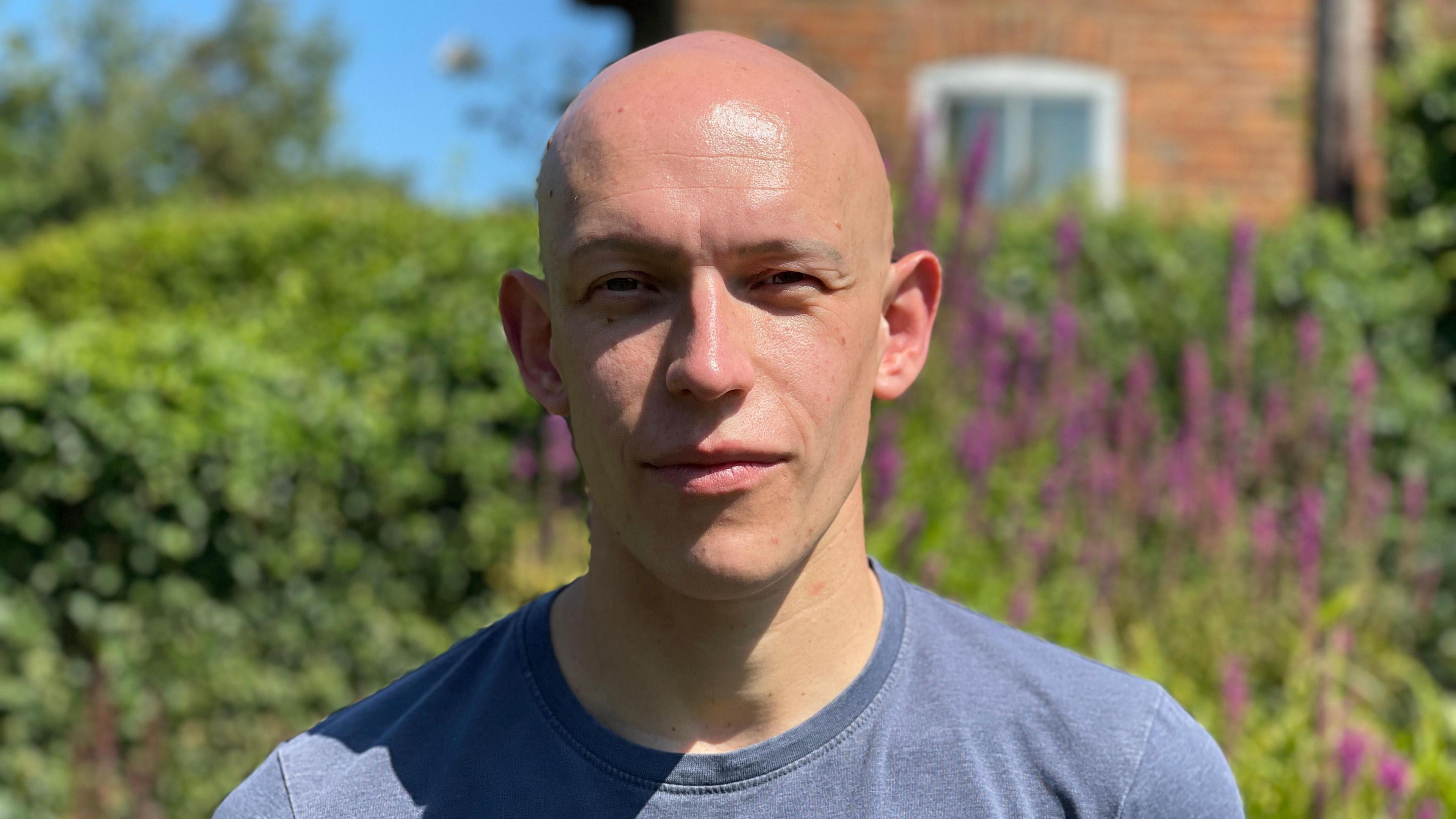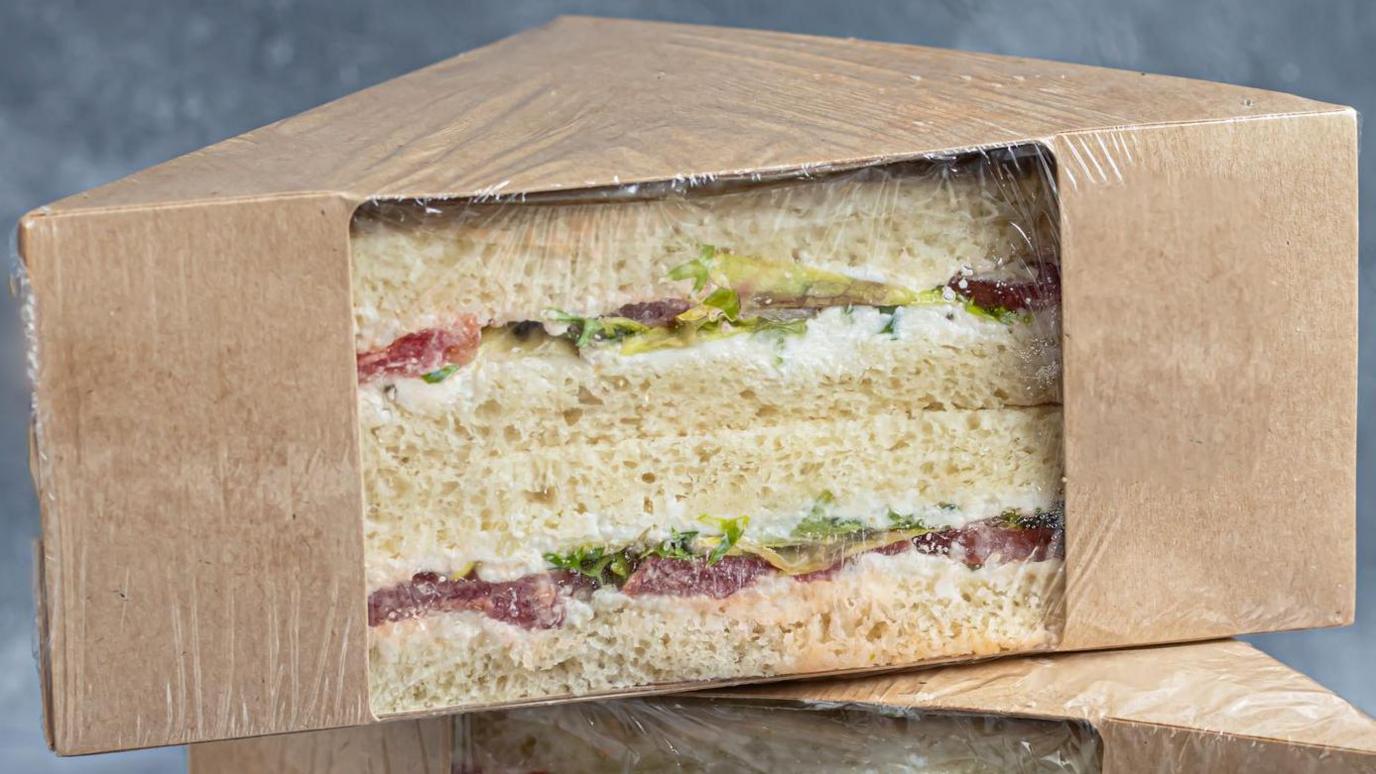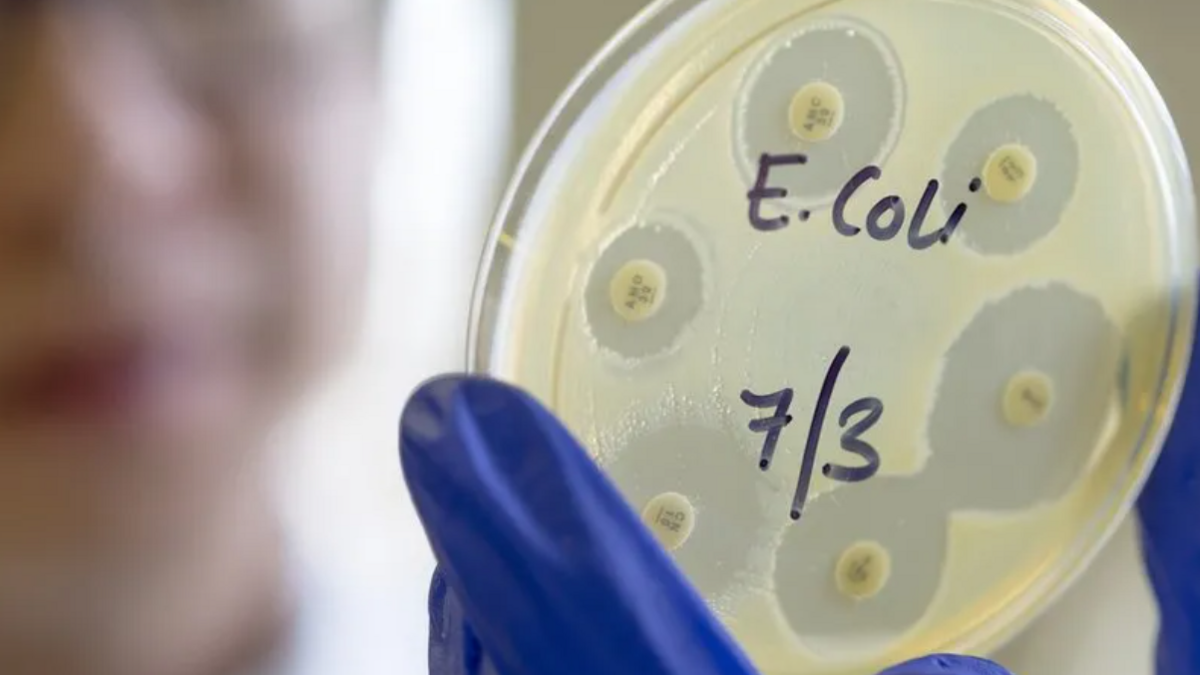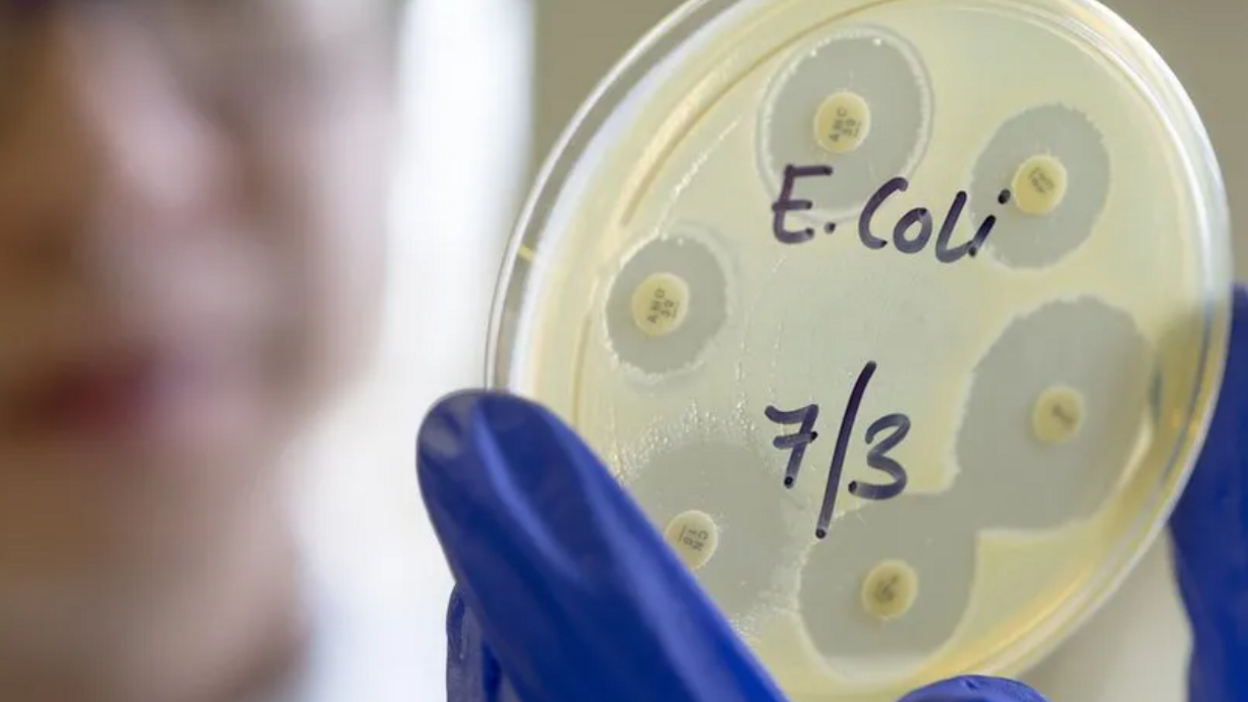NHS apology after E. coli patient's 'unbearable pain'

Matt Jenkins, from Faversham, was initially discharged from A&E with painkillers
- Published
A man who developed E. coli after eating a contaminated sandwich said the pain was so bad he thought he was going to die.
Matt Jenkins, from Faversham, Kent, was initially discharged from A&E with painkillers despite passing blood up to 40 times a day.
After returning in agony, it took another four days before he was diagnosed with the infection – a delay which he said put himself and other patients at risk.
East Kent Hospitals University NHS Foundation Trust has apologised for any distress caused to Mr Jenkins.
Mr Jenkins, who has type 1 diabetes, was sent home from the William Harvey Hospital in Ashford with a prescription for codeine on 18 May.
Advised by NHS 111, he said he returned to A&E the following day where he spent 34 hours on a chair before he was put on a trolley in the resuscitation unit as no other beds were available.
“The pain was unbearable. I had stomach cramps like I’ve never experienced in my life,” he said.
“At one point at home, I passed out with the pain. I was shaking and felt very, very poorly – the worst I’ve ever felt in my life.”
'No-brainer'
He was then moved to a ward alongside other patients, some of whom had cancer, before his diagnosis on 23 May when he was isolated.
He said: “I was losing blood a lot and sharing toilets with other patients.
"In my mind, I would have thought losing blood at that rate is a key sign of infection and someone who is severely unwell.
“With my diabetes, I would have thought maybe I would have been seen to quicker.”
Prof Hugh Pennington, of the University of Aberdeen, said Mr Jenkins should have been kept away from other patients.
“Keeping the patient isolated is a no-brainer," he said.
His infection was part of a national E. coli outbreak linked to a type of lettuce leaf found in pre-packaged sandwiches.
There have been 288 confirmed cases and one death.
The trust’s chief medical officer, Dr Des Holden, said a doctor requested Mr Jenkins was moved to a separate ward as soon as his diagnosis was confirmed.
“While our staff strive to transfer patients as quickly as possible, we accept there may be delays if suitable beds are unavailable,” he said.
Follow BBC Kent on Facebook, external, on X, external, and on Instagram, external. Send your story ideas to southeasttoday@bbc.co.uk , external or WhatsApp us on 08081 002250.
Related internet links
- Published20 June 2024

- Published27 June 2024

- Published6 June 2024
